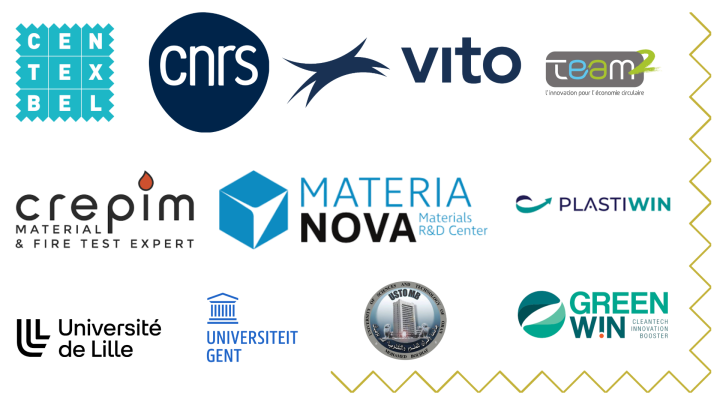With the support of


Plastics are an integral part of modern life. The technology we enjoy today is largely the result of plastics, but at the end of their life, we must also find sustainable solutions for these materials. Recycling and reuse help to alleviate the pressure on the earth's finite resources, including natural gas, petroleum, coal, wood and water. By reusing plastics rather than continually manufacturing the same type of material, we can significantly reduce the environmental impact on landfills worldwide. Furthermore, recycling and reusing plastics helps to reduce greenhouse gas emissions and slow climate change.
Despite the fact that many plastic materials are already selectively collected and that some of them are effectively recycled, we have found that plastics contaminated with non-REACH-compliant brominated flame retardants are not or insufficiently recycled, incinerated or, worse still, landfilled.
The CIRCOPLAST project has been set up with the specific aim of responding to this issue. It introduces an innovative new technology for the removal of brominated flame retardants from plastic waste. The project also demonstrates how these so-called 'difficult' plastics can be reused as new raw materials, thereby drastically reducing the amount of plastic waste produced.
The CIRCOPLAST project builds on the results of the INTERREG FWVL project VALBREE, focusing on the development of a green and innovative process that does not use toxic solvents and employs cutting-edge technologies (supercritical fluids, UV radiation and enzymatic processes).
The VALBREE consortium has successfully demonstrated an innovative process at the laboratory scale. To enhance the economic viability of the process, the Interreg VI project CIRCOPLAST will investigate the potential of converting the batch process into a continuous extrusion process and exploring synergies with other decontamination techniques. To this end, a twin-screw extruder will be equipped with UV lamps, a zone where scCO2 extraction is possible and co-solvents will be added in such a way that the extraction of brominated components during the extrusion process becomes possible. Furthermore, a biological/enzymatic method will be developed to recycle polyurethane materials, which are also often considered difficult to recycle polymers and functionalised with various banned flame retardants.
A second key objective of the project is the development of a new generation of polymer formulations based on recycled building blocks on the one hand and sustainable bio-based building blocks on the other. The second pilot project will utilise bio-based lignin building blocks to develop a new generation of polymers and flame retardants.
Objectives
The developments in the CIRCOPLAST project will enable companies in the three regions to adopt advanced technologies and innovative processes that are economically viable, energy-efficient and environmentally friendly. This will give companies such as plastics recyclers and processors a competitive advantage, allowing them to develop unique expertise in the field of reprocessing recycled plastics and its revaluation as a new raw material.
The objective is to effect a substantial transformation in the current situation and facilitate the transition to a circular plastics economy that adheres to quality standards, safety requirements and environmental considerations.
CIRCOPLAST's cross-border approach leverages the partners' collective expertise to develop integrated solutions for companies in the region. The integration of recyclates into a product requires not only expertise in plastics processing and recycling, but also in the characterisation of flows and the assessment of end product properties.
By leveraging the partners' distinct expertise, we may be able to develop solutions for polymers that are currently challenging to recycle.
Partners

Project leader:
Centexbel
Partners:
Materia nova, UMET CNRS, UMET Université de Lille, VITO, Crepim, Ugent
Associated partners:
Université des sciences et de la Technologie d’Oran Mohamed Boudiaf, Greenwin, TEAM2, PLastiwin
Financing

Total budget: 2.892.128,92 euro
ERDF financing: 1.735.277,34 euro




